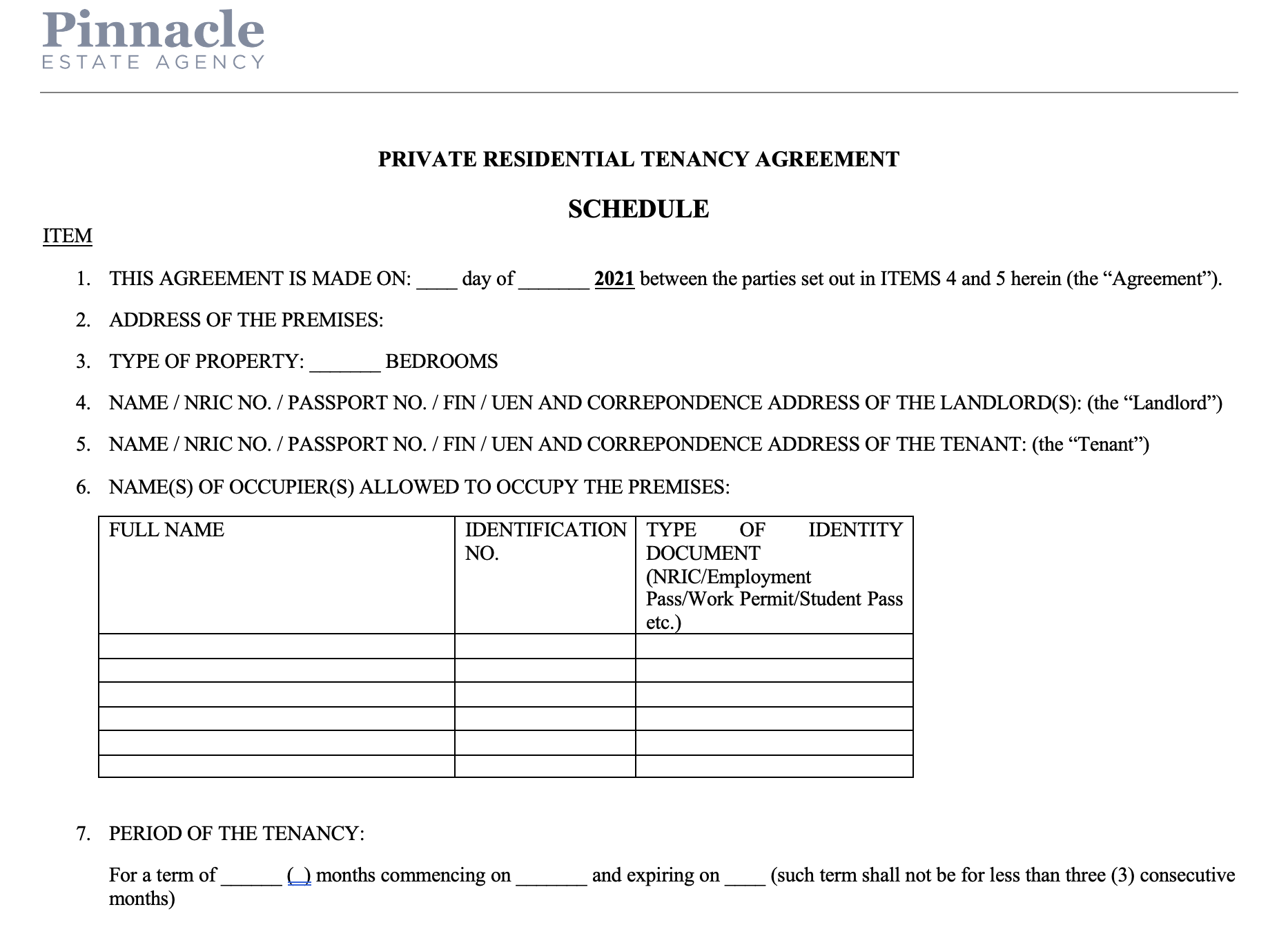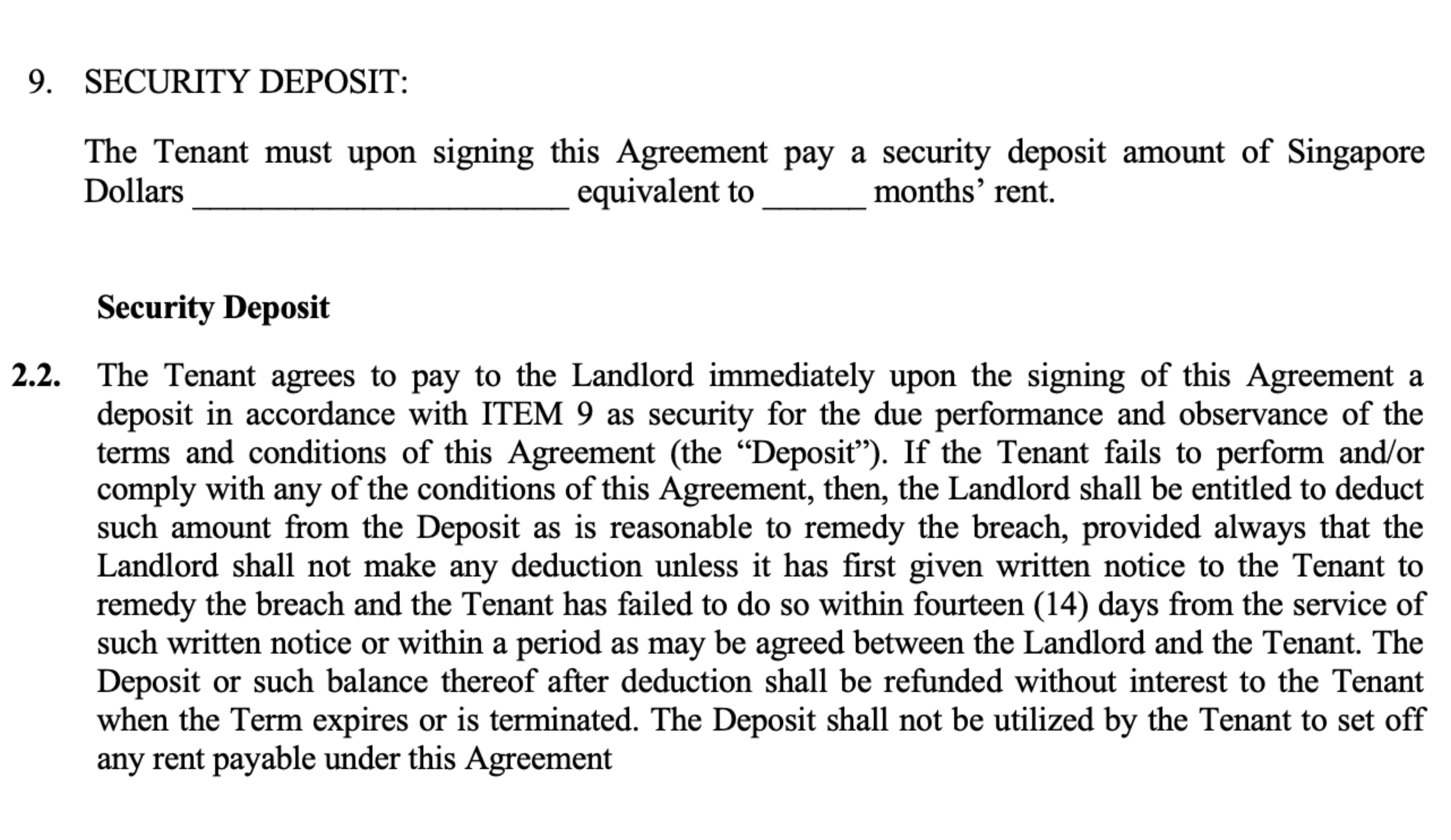Letters of Intent (LOI) for Lease of Property in Singapore: Everything You Need to Know
This article explains what a Letter of Intent (LOI) is, common terms found in LOI, what prospective tenants should do prior to signing a LOI, and what happens after LOI is signed
If you’re looking to rent a property in Singapore, once you find what you want the landlord will ask you for a letter of intent. If you have an agent representing you, he/she will prepare a copy of Letter of Intent for you to sign. Otherwise, you would need to draft one, or download a copy from us. This article will go into detail about the following:
What Terms are Generally Included in a Letter of Intent?
What Should You Do Before Signing a Letter of Intent?
What Happens After You’ve Signed a Letter of Intent?
How Can You Get a Letter of Intent Template?
What is a Letter of Intent?
When you sign a letter of intent, you are letting the property owner or landlord know that you plan on entering into a tenancy agreement with him/her.
A letter of intent is just that, it shows your intentions but does not bind you legally to follow through with the tenancy agreement. And some landlords don’t even ask for one. However, giving your intended landlord a signed letter of intent shows that you have stopped looking at other rental properties. It also gives you confidence that your prospective landlord will stop considering other prospective tenants once they have your signed letter of intent in hand.
What Terms are Generally Included in a Letter of Intent?
Most letters of intent contain the same terms that you will find in a tenancy agreement. These would be the terms included in the lease, deposit payments for good faith and security, as well as a diplomatic clause. Because the tenancy agreement will bind you to specific terms, the letter of intent should therefore reflect those same terms. We will go into detail regarding those clauses below.
Lease Terms
Your letter of intent will discuss the terms of your prospective lease, like the rental amount and the duration of the lease. You can expect the lease duration to be one to two years. Rarely will you find a lease for a duration of less than one year.
Security Deposit
Your letter of intent will also let you know how much of a security deposit you will be expected to pay.
In general, the security deposit is in the amount of one month’s rent if you’re signing a 1-year lease, and it would likely be two months’ rent if it’s a 2-year lease. The purpose of a security deposit is to compensate your landlord should the property be damaged due to negligence on your part or if you break your lease by moving out early.
Good Faith Deposit
When you give your prospective landlord your signed letter of intent you will also include a good faith deposit. This shows him/her that you are seriously interested in renting the property. The amount is typically one month’s rent if you would be signing a 1-year or 2-year lease.
Although these deposits seem similar, they are different in a couple of key aspects:
- The security and good faith deposits are for different purposes. As discussed earlier, the security deposit is used to compensate the landlord if the property is damaged out of negligence on your part or if you move out early.
- These deposits are paid to the landlord at different times. You pay the good faith deposit when you give him/her your signed letter of intent, whereas you pay the security deposit when signing the tenancy agreement.
Your good faith deposit may transition into part of your security deposit or act as a rental advance when it comes time to sign the tenancy agreement. In this case, you will only be required to pay your landlord the remainder of the security deposit, if any.
Furthermore, your landlord will keep your security deposit for the length of your lease. When you vacate the property at the end of your lease it will be refunded unless your landlord has reason to keep part or all of it to pay for the cost of repairing damage caused by your negligence.
Diplomatic Clause
The diplomatic clause in a tenancy agreement permits tenants to break their lease after giving the landlord due notice, which is usually at least two months, as long as they’ve stayed a minimum of 12 months. This would be if the tenant is permanently transferred out of Singapore. This means tenants must live in the unit a total of at least 14 months, which includes the notice period. The diplomatic clause is for leases lasting more than 24 months.
It is especially important that expatriates state this in their letter of intent and request that a diplomatic clause be included in their tenancy agreement. There is always a chance that they will need to leave Singapore unexpectedly and thus be forced to terminate their lease prematurely.
Special Requests
Make sure that your letter of intent spells out the terms that you and your prospective landlord have agreed on. But you also need to make sure that specific clauses that you want included in your tenancy agreement are also in your letter of intent.
Your letter of intent should also include any special requests that you have in mind for the property. These might have to do with the furnishings. For example, it would not be unreasonable to ask your landlord to replace certain pieces of existing furniture that are old and worn out.
What Should You Do Before Signing a Letter of Intent?
Before you sign and submit a letter of intent and pay your prospective landlord a good faith deposit, you need to verify that he/she actually owns the property. If you skip this important step you could end up being defrauded. Con artists sometimes offer properties for rent that they don’t even own and disappear with deposits paid by innocent victims.
You can verify that your prospective landlord owns the property in these three ways:
- Sit down with your prospective landlord in front of a computer and have him/her sign into the MyProperty portal associated with the Singapore Land Authority. This way you can verify the HDB flat(s) and/or private properties that he/she supposedly owns.
- If you are trying to rent an HDB flat, ask your prospective landlord to sign into his/her HDB account.
- You can also verify the ownership of an HDB flat by searching on the IRAS myTax portal for a per-search fee of $2.50. For private properties, you can check use the SLA Integrated Land Information Service for $5.35 per search.
What Happens After You’ve Signed a Letter of Intent?
Once you’ve submitted your signed letter of intent to your prospective landlord, he/she will now countersign the document. This is also when you are expected to pay your good faith deposit. This goes directly to your prospective landlord and not the property agent. This is as a precaution because agents have been known to sometimes abscond with the deposit.
Once both parties have signed the letter of intent and you have given your landlord a good faith deposit, the landlord or landlord’s agent will draft the tenancy agreement and send it to you within the agreed upon timeframe. Take whatever time you and your landlord have agreed upon to review the tenancy agreement, then sign and return it to your landlord.
If you change your mind about renting the property once you’ve submitted your signed letter of intent, this will cause the forfeiture of your good faith deposit. But if the reason you backed out was because you and your landlord could not agree on the terms set forth in the tenancy agreement, you can get your good faith deposit returned. Also, if your landlord decides that he/she no longer wants to rent out the property this would also give you the right to a refund on your good faith deposit.
How Can You Get a Letter of Intent Template?
You can ask your property agent to give you a template to use for the letter of intent. But if you don’t understand all the terms set forth in the letter of intent and/or the tenancy agreement, please contact us. We would be happy to go over the letter of intent as well as the tenancy agreement with you, explaining what the terms and the clauses mean in both. Furthermore, we can inform you of any unfavourable clauses that could lead to problems with your landlord down the road.
For comparison, you might want to download our Letter of Intent Template to see if ours is different than the one you got from your property agent or landlord.
Disclaimer: The information provided in this article does not constitute legal advice. We recommend that you get the specific legal advice you need from an experienced attorney prior to taking any legal action. While we try our best to make sure that the information provided on our website is accurate, you take a risk by relying on it.
At Pinnacle Estate Agency, we strongly believe in sharing our real estate knowledge to the public. For more content like this article, check out our Singapore Property Guides.










